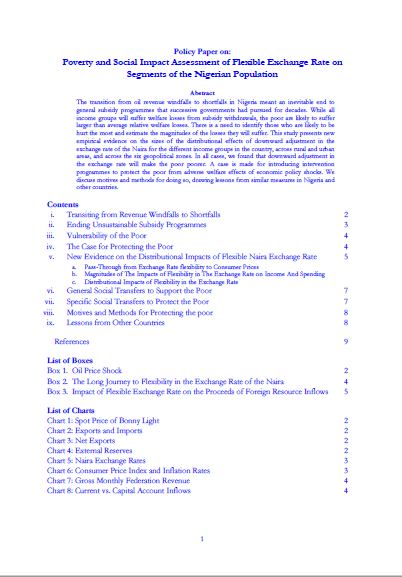In 2016, Nigeria’s government could no longer sustain its regime of general subsidies following a slump in global oil prices in 2014. As a result, the cost of electricity and petrol increased, while the exchange rate of the Naira was adjusted downwards. This policy paper presents new empirical evidence on the sizes of the distributional effects of downward adjustment in the exchange rate of the Naira for the different income groups in the country, across rural and urban areas, and across geopolitical zones. It makes a case for introducing intervention programmes to protect the poor from adverse welfare effects of economic policy shocks, discussing motives and methods for doing so and drawing lessons from similar measures in Nigeria and other countries.
Poverty and social impact assessment of flexible exchange rate on segments of the Nigerian population: policy paper

